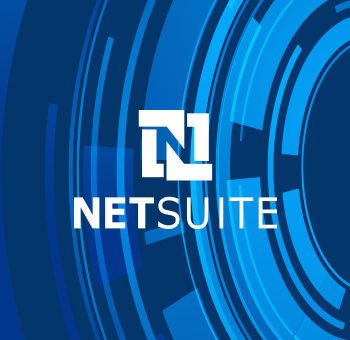AI tools have dramatically transformed how we approach NetSuite development at Techfino. But, amid the excitement around artificial intelligence, a fundamental truth remains: solution design requires human expertise that AI simply cannot replicate.
The reality we've discovered is that AI serves best as a performance booster for already-skilled professionals, not as a replacement for missing expertise. This distinction becomes increasingly critical as organizations rush to implement AI solutions without fully understanding their limitations.
Why Solution Design Remains Fundamentally Human
When implementing NetSuite, stakeholders rarely express their requirements with perfect clarity. They need guidance from trained requirement gatherers and solution designers. Each ERP implementation differs slightly, requiring unique expertise to select the correct record types and objects.
AI can only regurgitate information that already exists. When building customizations for an ERP, you're navigating uncharted territory by definition. Imagine a company that needs an order entry system where the order of line items matters and needs to be frequently manually changed by users. What component in NetSuite should serve as the base? Sales Orders? Custom Records? Custom Transactions? What if it turns out that, after a bit of digging, you discover a dozen more secondary requirements that weren't mentioned at first?
While AI excels at conversation, it cannot sense that some requirements may not have been mentioned. It also cannot weigh the relative importance of requirements to decide which must be sacrificed to stay within budget. It lacks experience - the undocumented knowledge of strengths and flaws based on past successes and failures. A human designer possesses this crucial ingredient: experience and knowledge beyond what's documented.
The Collaborative Future: Human Expertise Guiding AI Tools
The most effective approach we've found is collaborative. When querying AI, skilled developers can identify suggestions that don't make sense. This goes beyond recognizing hallucinations. Often, AI makes perfectly coherent decisions that are simply wrong for the specific context.
A skilled developer spots these issues and adjusts the prompt to correct the course. This applies to both high-level design and raw code. We have yet to see AI write correct SuiteScript solutions for anything remotely complex in a single attempt. It creates a good baseline but never a finished product. The developer must guide and correct it throughout the process.
At Techfino, all our code now starts with an AI-generated base. This approach has reduced project timelines, creating savings we pass to clients through more competitive pricing. This allows customers to build automations they want on budgets they can more readily justify.
We also leverage AI extensively during requirements gathering, particularly in meetings. AI listeners take notes and summarize decisions, helping consultants remember every nuance discussed. This shortens the time between requirement elicitation and solution acceptance, resulting in better solutions delivered faster.
Changing Consultant Behavior, Not Client Expectations
Interestingly, client behavior hasn't changed much with the introduction of AI meeting tools. Our Techfino consultants remain ahead of the curve, but behavioral changes due to AI require some form of light training. Clients aren't accustomed to AI meeting tools and don't know how to leverage them effectively.
Our consultants, however, have adapted their approach. Sometimes it's as subtle as making a clear recap of points at the end of meetings to ensure the AI assistant captures information accurately. Other times, it's knowing that AI-generated summary notes will supplement their own, allowing more flexibility during discussions with the safety net of AI catching anything they might miss.
The Evolution of NetSuite Development Roles
Looking forward, we expect significant changes in NetSuite development roles. The bottom-tier positions will likely disappear. Developers who are merely coders with limited NetSuite knowledge will become obsolete. To remain relevant, developers must upskill to understand business processes and gain functional knowledge of NetSuite.
Those who rely on Functional Consultants to hand them designs for simple coding tasks will find their roles eliminated. However, this doesn't mean developers will be entirely replaced by Functional Consultants. Developers possess the trained mind of programmers - understanding code flows, if/else statements, and code structure. This remains a specialized skillset that Functional Consultants typically lack.
For current NetSuite developers looking to remain valuable, we recommend increasing functional understanding of NetSuite by obtaining functional certifications. Equally important is improving requirements gathering and communication skills. Developers should prepare to engage directly with stakeholders, eliciting requirements and discussing the relative merits of different design approaches.
Taking business courses such as accounting to increase business knowledge will also prove invaluable. These skills form the foundation for designing effective NetSuite solutions in an AI-enhanced environment.
Client Misconceptions About AI in NetSuite Implementation
Surprisingly, we haven't seen clients expecting much from AI in their implementations - which represents a misalignment in itself. Clients should ask their implementors how they use AI and learn to distinguish between correct AI usage and dangerous practices like "vibe coding."
NetSuite developers have always been in high demand, leading many implementors to operate without dedicated development staff. With AI, these same implementors might believe they can deliver scripted customizations using AI alone. This approach is both incorrect and dangerous.
Organizations implementing NetSuite need to verify that their consultants use AI to enhance existing personnel rather than replace them. They should ensure their implementation partners maintain skilled experts rather than attempting to avoid having them on staff.
The Dangers of "Vibe Coding" in ERP Implementation
"Vibe coding" refers to using AI exclusively to generate code without human developers in the loop. You feed requirements to AI, which produces code that goes directly into production. This practice is extremely dangerous in an ERP context because enterprise resource planning systems typically handle a wide range of inputs.
Flaws in AI-generated code may remain hidden for extended periods. Rather than causing immediate errors (which are easy to spot), they might produce subtly flawed outputs that take months to detect. By the time these issues are discovered, significant damage may have occurred - data corruption, incorrect invoices, and other serious problems.
Clients implementing NetSuite should establish direct contact with their lead developers to confirm they exist and demonstrate competence. Building a relationship with the Technical Lead responsible for your account's customizations provides an essential safeguard against these risks.
The Ideal Human-AI Collaboration in NetSuite Development
The most successful NetSuite implementations using AI follow a simple principle: already-expert professionals leveraging AI to increase efficiency. AI should enhance existing skills rather than attempting to replace missing expertise entirely. It functions as a performance booster, not a substitute for human judgment.
We've found AI most helpful for generating baseline code that developers then refine manually. AI meeting assistants that summarize discussions and note action items have also proven invaluable. However, when it comes to answering functionality questions about NetSuite, AI consistently falls short. The answers are typically incorrect and confusing, as AI lacks the comprehensive understanding needed to address serious functionality questions accurately.
The Future of NetSuite and AI
Looking ahead, we're curious whether NetSuite will release in-platform tools for AI coding, similar to when they introduced SuiteFlows to empower non-programmers with codeless automation capabilities. Will Oracle develop AI-powered code generators within NetSuite itself?
We expect Oracle to proceed cautiously, as they would bear liability for problematic code that disrupts customer accounts - precisely the danger of "vibe coding" discussed earlier. Effective coding still requires skilled programmers. However, market pressure for Oracle to release such capabilities exists. How they'll balance this demand with realistic, responsible solutions remains to be seen.
The transformation of NetSuite development through AI represents an evolution rather than a revolution. Human expertise in solution design remains irreplaceable, while AI serves as a powerful tool to enhance efficiency and capability. Organizations that understand this balance will achieve the greatest success in their NetSuite implementations, creating solutions that truly meet their business needs while avoiding the pitfalls of over-reliance on artificial intelligence.
For NetSuite professionals, the path forward involves embracing AI as a collaborative partner while continuing to develop the business understanding and design thinking that machines cannot replicate. By focusing on these uniquely human capabilities, developers can ensure their continued relevance and value in an AI landscape defined by hyper-growth.
Get Started Now
The easiest way to get started is to contact Techfino today. If you’d like a little more information first, you can download our ContinuedSuccess Whitepaper. Either way, we hope you’ve found this guide helpful and hope that we can further assist you on your path to leveling up your NetSuite Support.



